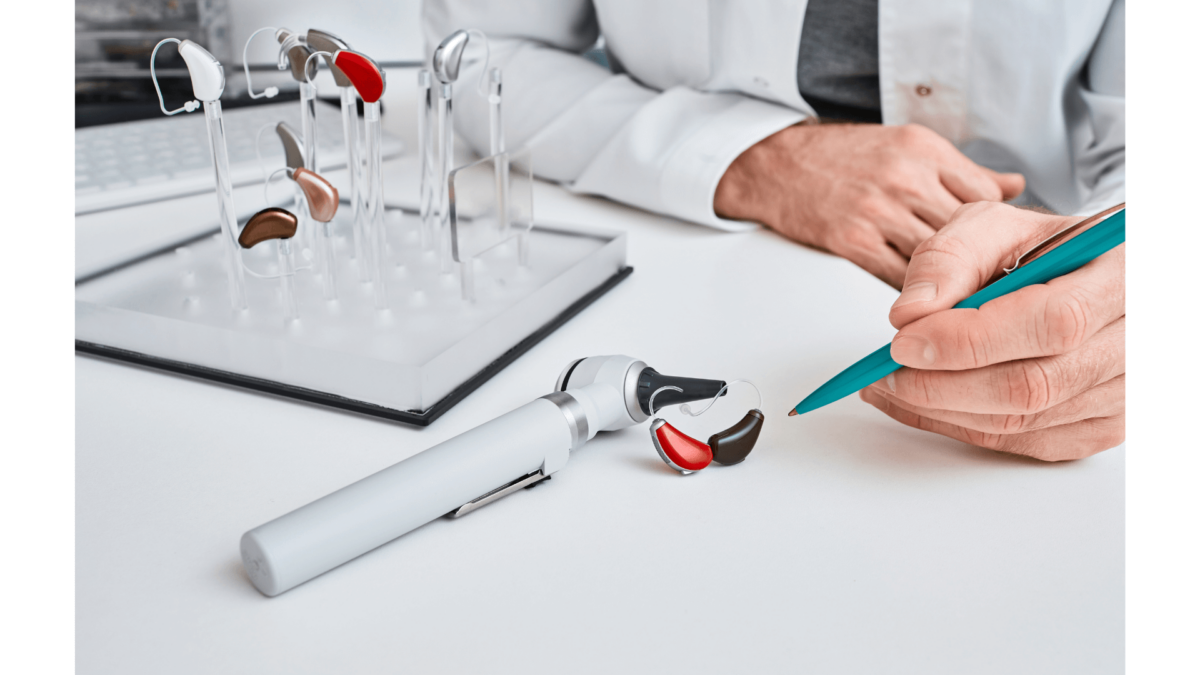
Finding the Right Hearing Aid for You
Hearing loss can be a challenging and isolating experience, but the right hearing aids can make a world of difference. With so many types on the market, you have a lot of options. This guide will help you understand the different kinds of hearing aids and offer tips on choosing the best one for you.
Understanding the Different Types of Hearing Aids
There are several main types of hearing aids available:
Behind-The-Ear (BTE)
BTE hearing aids are housed in a small plastic case that rests behind the ear, connected to an earmold by a tiny tube. They’re suitable for most types of hearing loss and are the largest, most visible type. They’re also the most powerful hearing aids.
Receiver-In-Canal (RIC)
RIC hearing aids are similar to BTE models but have the speaker built into an earbud that sits in the ear canal. This setup can provide a more natural sound quality, and the device is less visible than a standard BTE.
In-The-Ear (ITE)
ITE hearing aids fit entirely inside the outer ear and are customized to each individual’s ear shape. They’re less visible than BTE models and can be easier to handle but might not be suitable for severe hearing loss.
In-The-Canal (ITC)
ITC hearing aids are smaller than ITE models and fit partly in the ear canal. They’re more discreet and less likely to pick up wind noise but can be harder to adjust due to their size.
Completely-In-The-Canal (CIC)
CIC hearing aids are virtually invisible to others, as they fit completely inside the ear canal. They’re ideal for mild to moderate hearing loss but may not have as many features due to their compact size.
Invisible-In-The-Canal (IIC)
IIC hearing aids are the smallest and most invisible type of hearing aid. They’re placed deeper into the ear canal and can be worn continuously for several months. They are typically suitable for mild to moderately severe hearing loss.
Factors to Consider When Choosing a Hearing Aid
Degree and Type of Hearing Loss
The severity and type of your hearing loss are crucial in determining the appropriate hearing aid. For example, BTE and RIC devices are often best for severe hearing loss, while CIC or IIC devices might be ideal for less profound hearing loss.
Lifestyle
Your daily activities and lifestyle play a significant role in choosing a hearing aid. If you’re active and spend time in various listening environments, you’ll need a robust, versatile hearing aid with features that can adapt to different situations.
Manual Dexterity
Small hearing aids can be fiddly to handle, especially when changing batteries or adjusting settings. If you have issues with dexterity, you might prefer a larger model that’s easier to manage.
Additional Features
Modern hearing aids come with a range of features, from noise reduction and directional microphones to wireless connectivity and rechargeable batteries. Consider which features will benefit you most in your everyday life.
Budget
Hearing aids are an investment, with prices varying widely. Determine a budget and discuss it with your hearing health specialist to find out which devices offer the best value for your specific needs.
Tips for Choosing the Right Hearing Aid
Here are a few tips for choosing your next hearing aids:
- Get a Professional Hearing Test: An accurate hearing test is the first step to finding the right hearing aid. We can assess your level of hearing loss and provide recommendations.
- Prioritize Comfort and Fit: Your hearing aid should be comfortable to wear for extended periods. Work with your hearing health professional to find the right fit and ensure there’s no discomfort or feedback.
- Test Different Models: Many hearing health professionals offer trial periods to test different hearing aids. Take advantage of these to find the one that feels and sounds the best to you.
- Look at Feedback and Reviews: Talk to other people who wear hearing aids and read reviews to learn from their experiences. This can provide insight into the pros and cons of different models.
- Plan for Future Needs: Your hearing loss may change over time, so consider hearing aids that can be adjusted or have features that will continue to benefit you in the long run.
Visit Us to Explore Hearing Aid Options
Choosing the right hearing aid is a personal journey influenced by your hearing loss, lifestyle, and personal preferences. Work closely with us to explore your options! Remember that the best hearing aid for you is the one that you feel comfortable wearing and that effectively meets your hearing needs.
